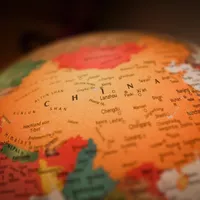169. 我 最 不 喜歡 的 詞語 ——“國外” - My least favorite word-"foreign"
|||||word||||||
169. My least favorite word-"foreign"
在 中文 裡 , 我 最 不 喜歡 的 詞語 大概 是 “ 國外 ”。
|||||||||probably||
In Chinese, my least favorite word is probably "foreign".
2010 年 , 我 大學畢業 , 成 了 一名 中文 教師 。
In 2010, I graduated from university and became a Chinese teacher.
過去 的 六年 , 先後 在 菲律賓 、 美國 和 英國 工作 、 生活 。
For the past six years, he has worked and lived in the Philippines, the United States and the United Kingdom.
無論 在 哪個 國家 , 每當 我 在 社交 網站 上 分享 照片 時 , 總會 看到 一些 這樣 的 評論 :
No matter what country I'm in, whenever I share a photo on social networking sites, I always see some comments like this:
“ 國外 人好 少 啊 !
"There are so few foreigners!
” “ 國外 都 這麼 漂亮 嗎 ?
" "Are foreign countries so beautiful?"
” “ 國外 的 天好 藍 !
" " The sky abroad is so blue!
” 語言 對 認知 是 有 一種 反向 塑造 作用 的 。
"Language has a reverse shaping effect on cognition.
長期 使用 “ 國外 ” 這個 詞語 , 其實 就是 抹殺 了 除了 中國 以外 的 眾多 國家 之間 的 差別 。
The long-term use of the word "foreign" is actually to obliterate the differences between many countries other than China.
彷彿 這 世界 上 只有 兩個 地方 , 中國 和 國外 。
As if there are only two places in the world, China and abroad.
事實上 每個 國家 都 是 獨立 的 個體 , 有 自己 的 特色 。
In fact, each country is an independent entity with its own characteristics.
即便 是 在 同一個 國家 , 鄉村 和 城市 的 生活 也 有 很大 的 差別 。
Even within the same country, life in rural and urban areas is very different.
在我看來 ,“ 國外 ” 這個 詞 只有 地理 意義 。
In my opinion, the word "foreign" has only a geographical meaning.
除此之外 , 長期 使用 “ 國外 ” 這個 詞語 也 把 中國 和 其他 國家 對立 了 起來 。
In addition, the long-term use of the term "foreign" has also pitted China against other countries.
當 你 說 “ 國外 的 天好 藍 ”, 其實 潛台 詞 就是 “ 國內 環境污染 太 嚴重 ”。
When you say "the sky abroad is so blue", the subtext is actually "the domestic environmental pollution is too serious".
事實上 , 中國 很大 , 據我所知 , 雲南 、 西藏 那 一帶 , 天 也 很 藍 。
In fact, China is very big, and as far as I know, the sky in Yunnan and Tibet is also very blue.
還 記得 曾經 在 網上 看過 一篇 文章 , 講 的 是 印度 首都 新德里 的 空氣污染 問題 , 這 也 是 “ 國外 ”。
I still remember reading an article on the Internet about the air pollution problem in New Delhi, the capital of India, which is also "foreign".
每個 人 只 陳述 自己 知道 的 事實 就 好 。
Everyone just states what they know.
在 評價 “ 中國 以外 ” 的 時候 , 可以 使用 “ 國外 有些 地方 ”。
When evaluating "outside China", "some places abroad" can be used.
如果 你 能 具體 說出 哪個 地方 就 更好 了 , 比如 : 我 去過 加州 , 那裡 的 天真 藍 !
It would be better if you could specify which place, for example: I've been to California and it's so blue!
如果 不 知道 , 你 可以 問 : 這是 哪裡 ?
If you don't know, you can ask: where is this?
環境 真 好 啊 !
The environment is so good!
評價 某國 人 的 特徵 的 時候 可以 說 “ 我 認識 的 一個 美國 人 ”、“ 俄羅斯 有些 人 ”, 而 不是 “ 美國 人 、 俄羅斯 人 ”, 不然 , 這 就是 一竿子打 死 一船 人 啊 !
When evaluating the characteristics of a certain country, you can say "an American I know" and "some people in Russia" instead of "Americans and Russians", otherwise, this is killing a boat with one shot!
無論是 談論 中國 還是 其他 的 國家 , 我們 都 使用 相對 嚴謹 的 詞彙 , 而且 只 談論 自己 知道 的 , 這樣 可以 幫助 我們 對人對事 都 保持 一個 客觀 、 公正 的 態度 。
Whether we are talking about China or other countries, we use relatively strict vocabulary and only talk about what we know, which can help us maintain an objective and fair attitude towards people and things.

